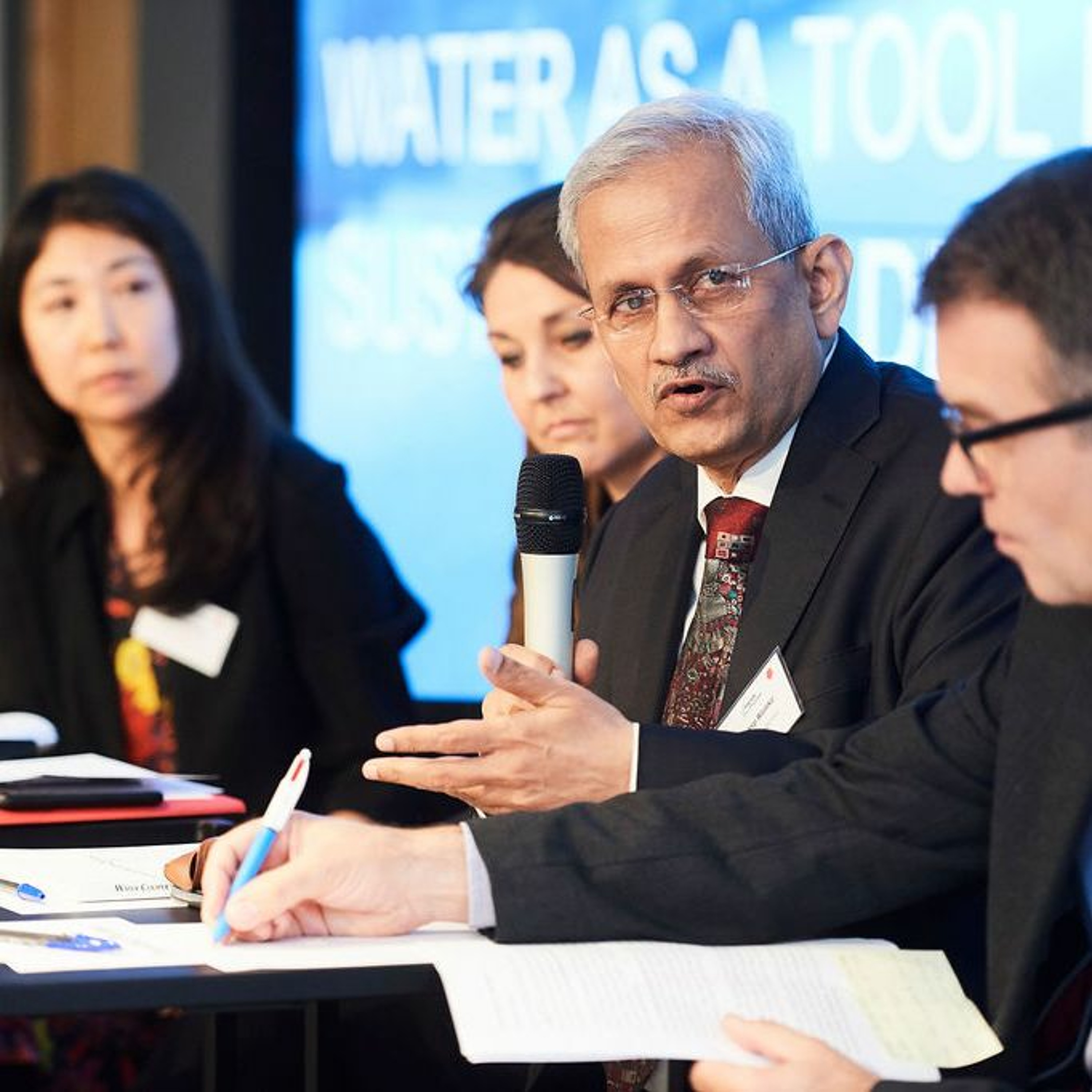THE RIPPLE EFFECT: Water as a tool for peace and sustainable development

b"Access to the world\\u2019s shared water resources is inextricably linked to socio-political and economic \\u2018power dynamics\\u2019 that impact hugely on people\\u2019s lives and livelihoods. This was one of the key messages of Friends of Europe\\u2019s 25 March Policy Insight debate \\u201cThe ripple effect: water as a tool for peace and sustainable development\\u201d.\\n\\nAs we prepare for the \\u201cchanging of the guard\\u201d in the EU \\u201cwe have a topic that\\u2019s so essential for world peace that we should keep it high up on the agenda,\\u201d said Shada Islam, Friends of Europe\\u2019s Director for Europe & Geopolitics.\\n\\nWith 40% of armed conflicts involving a resource-based stress factor, Head of Division for Economic and Global Issues at the European External Action Service (EEAS) Dominic Porter highlighted that there is growing acknowledgement that water is more than just a development issue. \\u201cThere is a gradually increasing acceptance that these subjects need to be treated at the highest political level. They contribute to, if not cause, threats to international peace and security,\\u201d he said.\\n\\nNaho Mirumachi, Lead of King\\u2019s Water research hub and Senior Lecturer at King's College London, said it was vital to remember that conflict wasn\\u2019t necessarily driven by a lack of water resources. Warning practitioners to beware \\u201cthe binary trap of thinking of water as a tool for peace or a tool for war\\u201d, she suggested that they consider the \\u201csocioeconomic power dynamics that make it easy for some people to access water and others to have to bear the burden.\\u201d\\n\\nBut while competition over this vital resource can generate friction and conflict, water diplomacy can also be used to help broker peace and cooperation and, crucially, should aim to make a tangible difference to ordinary citizens.\\n\\nPresident of the India-based Strategic Foresight Group Sundeep Waslekar set out the three factors which define good practice in transboundary water cooperation: \\u201cThere is a strong institutional mechanism. There is engagement of political leaders at the highest level. And this institutional structure and the engagement of top political leaders are used to make a real difference for the people.\\u201d\\n\\nTherese Noorlander, Sustainability Director for Europe at The Coca-Cola Company, noted that the private sector also has a role to play in taking a people-centred approach to water resource management, saying that while they \\u201ccannot fix the politics, by working on a local level and trying to add value for communities\\u2026 we can help out and make the right investments that really help build those communities.\\u201d"